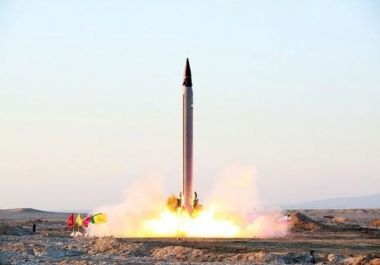Iranian commander boasts that Americans won't know Iran's missile power until it's already too late for them

The United States and other major powers may have convinced Iran to at least temporarily suspend its nuclear defence programme, but the Middle Eastern nation will not stop in building up its missile arsenal.
Iranian officials made recent proclamations indicating that the Islamic republic will continue its missile programme, supposedly to defend itself from external threats, including the U.S. itself.
Iranian President Hassan Rouhani has already ordered an expansion of the country's missile programme. Iran's Revolutionary Guard Corps (IRGC) Commander Ali Hajizadeh said his command will get two new advanced missiles next month, in time for the beginning of the Persian New Year.
Hajizadeh even revealed that all Iranian cities have "at least one missile base" each.
"What you see is like an iceberg, floating on the water, only part of which is visible. We have so many such bases that even if they manage to identify some of them, it will still be to no avail," he said, as quoted by CBN.com.
IRGC naval Commander Ali Fadavi, meanwhile, said he expects that the U.S. will be on the lookout for Iran's missiles.
"We have land-to-sea missiles with very heavy warheads located in tunnels along the Persian Gulf coastline. The Americans themselves once said the IRGC navy forces had dug over a thousand tunnels along the coast of the Persian Gulf," Fadavi said.
"When will the Americans learn about the things we haven't shown them? We will demonstrate this at a certain point in accordance with our interests or when the time is right. At that point the Americans will know [our abilities], but it will be too late for them," he added.
Iranian expert Ayelet Savyon of the Middle East Media Institute, for his part, explained that the nation clearly has more than defence in mind in its effort to beef up its missile capacity.
"Officially, the claim is ...the missile industry is for defence purposes only. As for the long-range missiles, it's obviously not [a] defensive tool," Savyon said.











